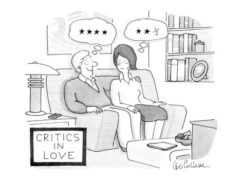Arts Council defines a music critic
OperaIn Arts Council England’s forthcoming report on the parlous state of opera, there is a novel allusion to the deleterious contribution of professional music critics to the present situation.
Music critics, we read, are ‘often quite conservative in their tastes, often in their roles for a long time, and almost exclusively writing from a classical music perspective’.
Well would you believe it?
If ever you need a sentence to show how little ACE knows about the realities of the arts, this is not a bad starting point.






It seems that classical music is a bad thing for the ACE. Implicit in that statement is, that classical music is a conservative art form, and no longer deserves a place in a modern, progressive society.
Such absurd ideas are not merely the result of ignorance but of a totally wrong idea about what modernity is or should be. It is contempt for ‘the past’ and all of its achievements, and an utopian hope for some ‘better future’.
Wasn’t that quoted comment in the report referring to professional opera critics almost exclusively writing from a classical music perspective? Whereas opera is a theatrical (or digital) artform and so also merits professional criticism from drama, design, etc perspectives which may be attempted by many classical music critics but is essentially done by them with various degrees of amateurishness?
Do you have any examples of this supposed “amateurishness”? One virtue of many leading opera critics being ‘in their roles for a long time’ is that they have extensive experience of what works as drama and what doesn’t, how singers act a role and so on, and particularly how those dramatic components have changed over the years as an informed background to the performance in question. Some opera critics even publish authoritative reviews of spoken drama productions. Whereas spoken drama critics will often have next to no knowledge of the classical music in an opera, how (well) it has been performed etc. Are we to continue the ACE drive to eliminate opera by reducing the medium of criticism to that of the drama alone?
They mean: not diverse, old, eurocentric.
There’s actually a notable male/female balance among opera critics, likewise a straight/gay balance, and a range of ages. Opera Magazine has reviews by writers from the Americas and Australia, though as probably 90% of opera performances are in Europe it’s hardly a surprise that most of the critics are Eurocentric.